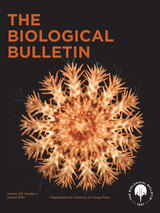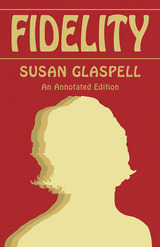
Recovering a lost feminist story of scandal and strength for a new generation
Out of print in the United States since its original publication in 1915, Susan Glaspell’s largely forgotten novel Fidelity tells the story of Ruth Holland, a young woman who returns to her small Midwestern hometown after eleven years’ absence. Forced home by the death of her father, Ruth must face a family and community that have largely turned against her following her affair with a married man.
Glaspell, mostly known as a playwright and for her founding of the Provincetown Players, was also an accomplished novelist. Inspired by events in Glaspell’s own life, Fidelity portrays Ruth’s struggle to find fulfillment, love, and purpose in a society that imposes rigid expectations and limitations on how a woman should live. Ruth is a woman torn between love and commitment to her family—and between love and commitment to herself. Glaspell’s narrative shifts between characters, offering glimpses through the community’s eyes of the ways that Ruth’s return forces residents to confront their beliefs and the impact that they have. In the vein of Chopin’s The Awakening and Flaubert’s Madame Bovary, Glaspell’s Fidelity holds an important place in the history of early twentieth-century feminist literature and is long overdue to be back in print.
Students at the University of Nebraska–Lincoln, under the guidance of Kevin McMullen, project manager of the Walt Whitman Archive, have resurrected this neglected novel. The text includes contemporary photographs of Susan Glaspell, a new introduction, and annotations throughout, which provide useful commentary for students and general readers alike.
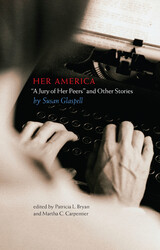
One of the preeminent authors of the early twentieth century, Susan Glaspell (1876–1948) produced fourteen ground-breaking plays, nine novels, and more than fifty short stories. Her work was popular and critically acclaimed during her lifetime, with her novels appearing on best-seller lists and her stories published in major magazines and in The Best American Short Stories. Many of her short works display her remarkable abilities as a humorist, satirizing cultural conventions and the narrowness of small-town life. And yet they also evoke serious questions—relevant as much today as during Glaspell’s lifetime—about society’s values and priorities and about the individual search for self-fulfillment. While the classic “A Jury of Her Peers” has been widely anthologized in the last several decades, the other stories Glaspell wrote between 1915 and 1925 have not been available since their original appearance. This new collection reprints “A Jury of Her Peers”—restoring its original ending—and brings to light eleven other outstanding stories, offering modern readers the chance to appreciate the full range of Glaspell’s literary skills.
Glaspell was part of a generation of midwestern writers and artists, including Sherwood Anderson, Sinclair Lewis, Willa Cather, and F. Scott Fitzgerald, who migrated first to Chicago and then east to New York. Like these other writers, she retained a deep love for and a deep ambivalence about her native region. She parodied its provincialism and narrow-mindedness, but she also celebrated its pioneering and agricultural traditions and its unpretentious values. Witty, gently humorous, satiric, provocative, and moving, the stories in this timely collection run the gamut from acerbic to laugh-out-loud funny to thought-provoking. In addition, at least five of them provide background to and thematic comparisons with Glaspell’s innovative plays that will be useful to dramatic teachers, students, and producers.
With its thoughtful introduction by two widely published Glaspell scholars, Her America marks an important contribution to the ongoing critical and scholarly efforts to return Glaspell to her former preeminence as a major writer. The universality and relevance of her work to political and social issues that continue to preoccupy American discourse—free speech, ethics, civic justice, immigration, adoption, and gender—establish her as a direct descendant of the American tradition of short fiction derived from Hawthorne, Poe, and Twain.
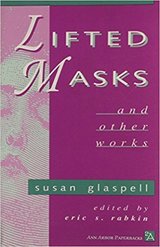
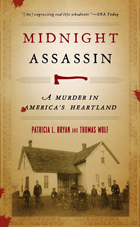
On the night of December 1,1900, Iowa farmer John Hossack was attacked and killed while he slept at home beside his wife, Margaret. On April 11, 1901, after five days of testimony before an all-male jury, Margaret Hossack was found guilty of his murder and sentenced to life in prison. One year later, she was released on bail to await a retrial; jurors at this second trial could not reach a decision, and she was freed. She died August 25, 1916, leaving the mystery of her husband's death unsolved.
The Hossack tragedy is a compelling one and the issues surrounding their domestic problems are still relevant today, Margaret's composure and stoicism, developed during years of spousal abuse, were seen as evidence of unfeminine behavior, while John Hossack--known to be a cruel and dangerous man--was hailed as a respectable husband and father.
Midnight Assassin also introduces us to Susan Glaspell, a journalist who reported on the Hossack murder for the Des Moines Daily, who used these events as the basis for her classic short story, " A Jury of Her Peers", and the famous play Trifles.
Based on almost a decade of research, Midnight Assassin is a riveting story of loneliness, fear, and suffering in the rural Midwest.
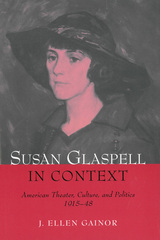
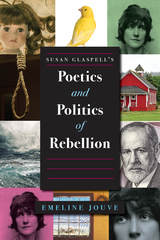
Analyzing plays from the early Trifles (1916) through Springs Eternal (1943) and the undated, incomplete Wings, author Emeline Jouve illustrates the way that Glaspell’s dramas addressed issues of sexism, the impact of World War I on American values, and the relationship between individuals and their communities, among other concerns. Jouve argues that Glaspell turns the playhouse into a courthouse, putting the hypocrisy of American democracy on trial. In staging rebels fighting for their rights in fictional worlds that reflect her audience’s extradiegetic reality, she explores the strategies available to individuals to free themselves from oppression. Her works envisage a better future for both her fictive insurgents and her spectators, whom she encourages to consider which modes of revolt are appropriate and effective for improving the society they live in. The playwright defines social reform in terms of collaboration, which she views as an alternative to the dominant, alienating social and political structures. Not simply accusing but proposing solutions in her plays, she wrote dramas that enacted a positive revolt.
A must for students of Glaspell and her contemporaries, as well as scholars of American theatre and literature of the first half of the twentieth century.
READERS
Browse our collection.
PUBLISHERS
See BiblioVault's publisher services.
STUDENT SERVICES
Files for college accessibility offices.
UChicago Accessibility Resources
home | accessibility | search | about | contact us
BiblioVault ® 2001 - 2025
The University of Chicago Press




